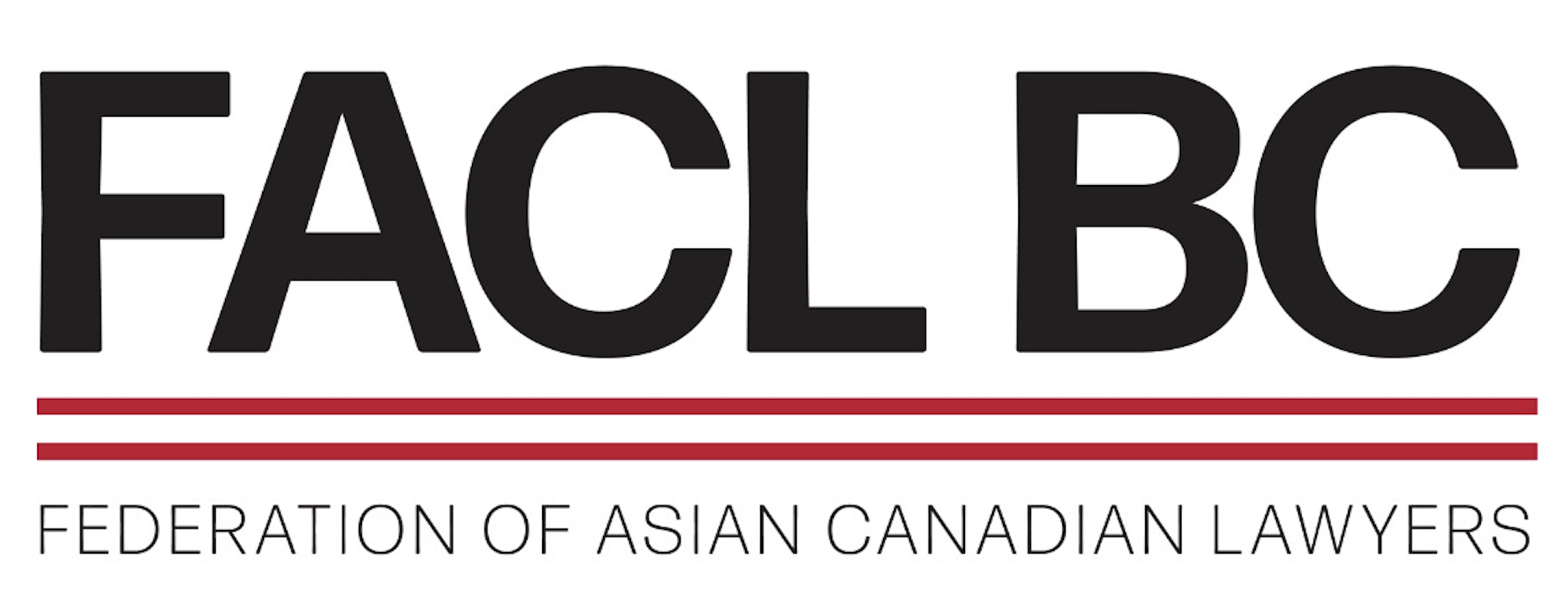FACL BC Statement Endorsing Resolution 3: Member Resolution regarding the Implementation of Changes to the Member Portal and Lawyer Directory (Law Society of BC 2022 AGM)
June 14, 2022
The Law Society of BC’s 2022 Annual General Meeting will be held on June 22, 2022. Members can vote on resolutions during the meeting or through advance online voting, which is open now until 5:00 p.m. PDT on June 21. Visit the Law Society’s website for the full text of all resolutions and more information about how to vote.1
FACL BC endorses Resolution 3: Member Resolution regarding the Implementation of Changes to the Member Portal and Lawyer Directory and encourages our members who are eligible to participate to vote in favour of it. This resolution has been put forward by Diana Sepúlveda and Afifa Hashimi, Vice President - External of FACL BC.
Resolution 3 proposes a number of changes to the Lawyer Directory on the Law Society of BC’s website to increase access to justice by enabling members of the public to more easily find a lawyer who meets their needs. If accepted, it would allow individuals to search for lawyers based on any of the following search criteria: lawyer’s first or last names, city, language(s) spoken, and area(s) of law in which the lawyer practises. Currently, searches require a lawyer’s last name, and only allow individuals to include a city, not languages or areas of law. Resolution 3 also proposes creating a page that contains a list of practice areas with a plain-language description of each area.
If accepted, the proposed resolution would be an important step forward for inclusivity. The proposed changes would allow individuals to find a lawyer who is able to communicate with them in their preferred language, making it easier for people who may not speak English to access legal assistance. For members of the public who do not already know of any lawyers, removing the last name requirement and expanding the search criteria will improve their ability to find counsel.
This statement by the movers of Resolution 3 explains how the resolution is linked to racial justice:2
Although we use the term “language minorities,” BC residents whose mother tongue is a language other than English make up a considerable proportion of the population: 31.2%.3
Language accessibility and racial justice are inextricably linked. Of the 31.2% mentioned above, the most widely spoken languages are Punjabi, Cantonese, Mandarin, Tagalog, German, and Spanish, most of which are predominantly spoken by racialized people. Providing meaningful access to legal services in languages other than English will improve racial equity by enabling language minorities, many of whom are Black, Indigenous, or people of colour, to participate in society and access justice at the same level as others. This is also connected to migrant justice, as many immigrants, refugees, and migrant workers speak languages other than English and may face language barriers while looking for legal assistance.
By expanding the use of the Lawyer Directory, access to the legal system would improve because it will be easier for members of the public to find lawyers who can provide what they need, both linguistically and service-wise.
FACL BC also endorses Resolution 4: Member Resolution on the Role of Lawyers in Addressing Climate Change. Read our statement on Resolution 4 here.
--
1 Voting: https://www.lawsociety.bc.ca/about-us/news-and-publications/news/2022/2022-annual-general-meeting-%E2%80%93%C2%A0second-notice/
2 Diana Sepúlveda and Afifa Hashimi’s Statement in Support of Resolution 3: https://faclbc.ca/resources/FACL%20BC%20Documents/Committees/Advocacy/Statement%20in%20Support%20of%20Member%20Resolution%20by%20Diana%20Sepúlveda%20and%20Afifa%20Hashimi.pdf
3 Statistics Canada reports that “immigrant languages” make up 29.3% of the BC population, French makes up 1.6% and “Aboriginal languages” make up 0.2%: https://www12.statcan.gc.ca/census-recensement/2016/as-sa/fogs-spg/Facts-PR-Eng.cfm?TOPIC=5&LANG=Eng&GK=PR&GC=59
